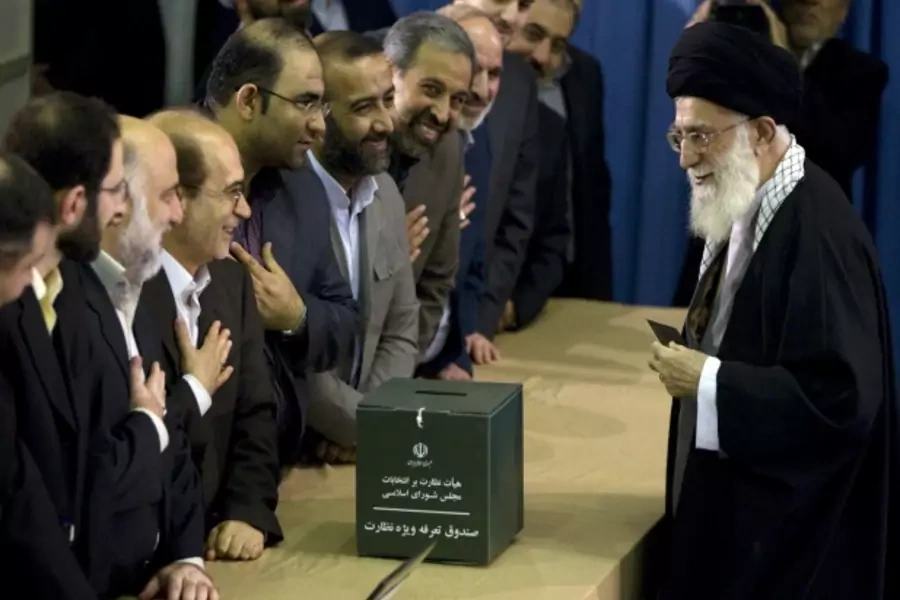You Might Have Missed: Syria, Iran, and Targeted Killings

Hearing of the Senate Armed Services Committee, "The Situation in Syria," March 7, 2012.
SENATOR WEBB: I want to ask you about one thing that you said, because I think we all need to think about it. You said: Any government -- I think this is a direct quote; I’m an old journalist here, I can write fast: "Any government that indiscriminately kills its own people loses its legitimacy."
More on:
Would you say that is a statement of the policy of the United States?
SECRETARY PANETTA: I would.
WEBB: Would you believe that with the circumstances in Tiananmen Square in 1989 when Chinese government turned its own soldiers loose and its own tanks loose on its own people and killed more than 1,000 people? Would you say that fits into this statement?
PANETTA: Let me put this on a personal view. My personal view would be that that was the case there.
Editorial Page, “Mr. Holder’s Epiphany,” Wall Street Journal, March 7, 2012.
More on:
Most important, he defended the targeted killing of al Qaeda leaders, including U.S. citizens like Anwar al-Awlaki, killed in Yemen last September: "Based on generations-old legal principles and Supreme Court decisions handed down during World War II, as well as during this current conflict, it’s clear that United States citizenship alone does not make such individuals immune from being targeted."
He added that while citizens have a right to due process, that doesn’t mean judges have to review battlefield decisions. "Where national security operations are at stake, due process takes into account the realities of combat," he said. "The Constitution guarantees due process, not judicial process." This is a welcome endorsement of executive power in war-fighting.
Matthew Duss, “Iran’s Elections and the Nuclear Standoff,” Center for American Progress, March 6, 2012.
Facing considerable internal tensions and growing popular discontent resulting from increasing international economic and financial sanctions because of Iran’s continued nuclear program, Iran’s leaders were clearly desperate to present the elections as an affirmation of the regime’s flagging legitimacy, and a rebuttal to international criticism and pressure over its controversial nuclear program. Iranian state television quoted Khamenei as declaring a religious obligation to vote, saying that a high voter turnout would “safeguard” Iran’s reputation. Intelligence Minister Heydar Moslehi similarly stated that a large turnout would “deal a heavy blow to the mouth” of Iran’s foes.
Attorney General Eric J. Holder, Address at Northwestern University, March 5, 2012.
An individual’s interest in making sure that the government does not target him erroneously could not be more significant.
(3PA: For earlier, comparable attempts by the Obama administration to explain and justify its policy of targeted killings, see the speeches given by Jeh Johnson, Harold Koh, and John Brennan. For my thoughts on the major shortcomings of Holder’s speech, read my blog post.)
Jim Michaels, “Use of IEDs by Syrian opposition rises sharply,” USA Today, March 5, 2012.
Unclassified numbers released by the agency show that IED usage in Syria has been steadily climbing since the revolt started last year, reaching about 38 in December. These unclassified numbers are based on media and other "open sources."
The presence of improvised explosive devices, or IEDs, and the heightened level of fighting suggests that Syria has moved beyond a citizen revolt, analysts say. "We have reached a point where it is an insurgency," said Joe Holliday, an analyst at the Institute for the Study of War.
Kimberly Dozier, “CIA Could Control Forces in Afghanistan After 2014,” Army Times, March 3, 2012.
If the plan were adopted, the U.S. and Afghanistan could say there are no more U.S. troops on the ground in the war-torn country because once the SEALs, Rangers and other elite units are assigned to CIA control, even temporarily, they become spies.
But a CIA-run war would mean that the U.S. public would not be informed about funding or operations, as they are in a traditional war. Oversight would fall to the White House, top intelligence officials, and a few congressional committees. Embedding journalists would be out of the question.
Chaitra M. Hardison, Michael G. Mattock, and Maria Lytell, “Incentive Pay for Remotely Piloted Aircraft Career Fields,” RAND Corporation, March 2012.
U.S. Department of State, International Narcotics Control Strategy Report: 2012, March 2012.
Senator Barack Obama, Town Hall Speech in Pendleton, Oregon, May 18, 2008.
You know, Iran, they spend one-one hundredth of what we spend on the military. If Iran ever tried to pose a serious threat to us, they wouldn’t stand a chance. And we should use that position of strength that we have to be bold enough to go ahead and listen.
From the archive:
Micah Zenko, “Anwar al-Awlaki: What We Learned From His Killing,” October 3, 2011.
 Online Store
Online Store